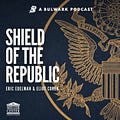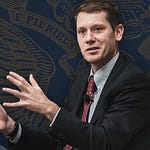Will Inboden, the Executive Director of the William Clements Center for National Security and Associate Professor of Public Affairs at the University of Texas Austin (and editor of the Texas National Security Review) joins Eric to discuss the alleged "October Surprise" in 1980 -- the long bruited charge that Reagan campaign manager Bill Casey colluded with Iranian intermediaries to forestall the release of the U.S. hostages until after the election. The original allegation, made by former Carter NSC staffer Gary Sick, resurfaced this spring after former Texas Lt. Governor Ben Barnes gave an interview to Peter Baker of the New York Times alleging that he and the late John Connally travelled the Middle East in 1980 to pass the word to the Iranians that they would get a better deal from Reagan than they would from Carter. One month later Gary Sick (along with Jonathan Alter, Kai Bird, and Stuart Eizenstat) argued in The New Republic that the matter is "All But Settled." Will and Eric discuss the historical evidence (or lack thereof) that supports the theory and compare it to Nixon's efforts to affect the Vietnam negotiations during the 1968 Presidential Election and the collusion between Russian operatives and the Trump campaign that was revealed in the Mueller and Senate Select Committee on Intelligence Reports.
https://www.nytimes.com/2023/03/18/us/politics/jimmy-carter-october-surprise-iran-hostages.html
https://warontherocks.com/2023/04/be-skeptical-of-reagans-october-surprise/
https://thedispatch.com/article/smears-and-myths-the-october-surprise-revisited/
https://newrepublic.com/article/172324/its-settled-reagan-campaign-delayed-release-iranian-hostages
https://www.amazon.com/Chasing-Shadows-Chennault-Watergate-Presidency/dp/0813937833
https://www.justice.gov/archives/sco/file/1373816/download
https://www.intelligence.senate.gov/sites/default/files/documents/report_volume5.pdf
Shield of the Republic is a Bulwark podcast co-sponsored by the Miller Center of Public Affairs at the University of Virginia. Email us with your feedback at shieldoftherepublic@gmail.com
Learn more about your ad choices. Visit podcastchoices.com/adchoices












The October Farce